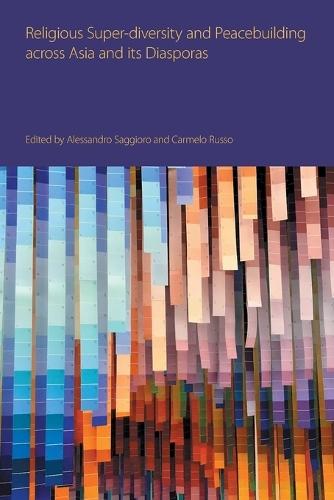Overview
The book explores two central themes: superdiversity, particularly within religious contexts, and the practice of peacebuilding. Contributors examine how these themes intersect, combining theoretical discussions with real-world case studies. The introduction lays out the book's conceptual framework and structure, featuring an opening chapter by Dionigi Albera and Maria Chiara Giorda, followed by eight chapters divided into two sections: one focusing on religious superdiversity in Asia and its implications for peacebuilding, and the other exploring case studies of the Asian diaspora in Italy, using Rome as a focal point. Steven Vertovec's seminal 2007 article introduced the concept of superdiversity, highlighting its transformative implications for immigration. Despite initial acclaim, superdiversity has faced criticism from scholars questioning its novelty and practical utility. Critiques include its ambiguous nature, challenges in quantifying complexity, and discrepancies in global migration patterns. However, the term has expanded across disciplinary boundaries and geographical contexts. Religion, once peripheral to discussions of superdiversity, has gained prominence and religious pluralism has become a key aspect of many researches offering insights into contemporary society's complexity. Throughout history, cultural relations have been marked by collisions and reshaping, accelerated by global migration and interconnectedness. Pluralism, while enriching society, may also engender conflicts, highlighting the need for comprehensive understanding and promotion of sustainable citizenship. This entails embracing diversity, fostering inclusion, and promoting mutual respect and equal participation for all members of society. The book takes a deep dive into the intricate relationship between superdiversity and peacebuilding, recognizing the complex interplay between these two phenomena. It employs empirical analyses spanning diverse geographical areas such as Syria, Indonesia, Nepal, Vietnam, and Asian diasporas in Italy. Through the lens of various religious contexts including Islam, Buddhism, Hinduism, Catholic Christianity, as well as ""Traditional"" and ""Indigenous"" religions, the authors explore how historical and anthropological narratives shape conflicts and their non violent transformation. In sum, the book offers a thorough examination of superdiversity, peacebuilding, and dialogue, providing valuable insights into the multifaceted nature of contemporary society and the complexities involved in fostering peace amidst diversity.
Full Product Details
Author: Alessandro Saggioro ,
Carmelo Russo
Publisher: Equinox Publishing Ltd
Imprint: Equinox Publishing Ltd
ISBN: 9781800506459
ISBN 10: 1800506457
Pages: 320
Publication Date: 10 November 2025
Audience:
College/higher education
,
Postgraduate, Research & Scholarly
Format: Paperback
Publisher's Status: Forthcoming
Availability: Available To Order

Limited stock is available. It will be ordered for you and shipped pending supplier's limited stock.
Author Information
Alessandro Saggioro is Full Professor in History of Religions and Director of the Department of History, Anthropology, Religions, Arts, Performing Arts of Sapienza University. Faculty member since 2007, he is leading or supervising research and teaching projects related to religious pluralism, mediation, peaceful coexistence. Director of the PhD Course in History and Cultures of Europe of Sapienza University and delegate for this University in the Italian network of Universities for Peace (https://www.runipace.org/), he is also editor-in-chief of Studi e Materiali di Storia delle Religioni and of the related book series Quaderni di SMSR. Books recently edited: with C. Russo: Roma citta plurale. Le religioni, il territorio, le ricerche, Chi siamo - Storia delle religioni 48, Bulzoni, Rome, 2018; Definire il pluralismo religioso, Morcelliana, Brescia, 2020. His interests and publications include teaching, methodology and Historiography of the History of Religions, religious conflict and coexistence, religions of Ancient Mediterranean, religions, law and politics, identity, mythology and peace studies. Carmelo Russo is Assistant Professor at University of Naples Federico II. He is Marie Curie Global researcher with a project on religious superdiversity. He has conducted fieldwork in Italy and Tunisia focusing on the migration process, religious dynamics, religious and spiritual minorities. He is the author of numerous journal articles and volume chapters. His monograph Nostra Signora del limite (Our Lady of the Boundaries), concerning the Marian worship in Tunisia, was published in September 2020.



